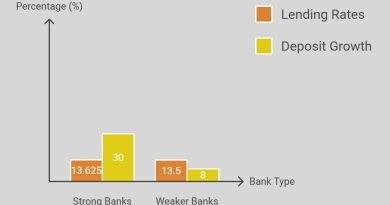Bangladesh has long been celebrated as a beacon of economic progress in South Asia, fuelled by its ready-made garment exports, remittances, poverty reduction, human development and infrastructure growth. Yet two recent reports—the World Bank’s Global Findex 2025 and updated revenue data from the National Board of Revenue (NBR)—indicate rising structural stress in financial inclusion and tax collection, threatening economic resilience and sustainable development.
🔻 Financial Inclusion Falls by 10 Percentage Points
According to the Global Findex Report, only 43% of Bangladeshi adults (15+) held a bank or mobile money account in 2024, down from 53% in 2021. In contrast, global account ownership increased from 74% to 79%, with Bangladesh lagging behind peers like India (89%) and Sri Lanka (above 80%).
- Mobile Financial Services (MFS): Down from 29% in 2021 to 20% in 2024
- Bank Accounts: Declined from 24% to 23%
A Bangladesh Bank official attributed the drop to new NID-linked account policies, which cancelled thousands of duplicate or inactive accounts.
🚺 Gender Gap Widens in Access
The gender gap in financial inclusion grew from 19 to 21 percentage points between 2021 and 2024.
- Women Account Holders: 33%
- Men Account Holders: 54%
Of the 122.8 million adults in Bangladesh, approximately 69.7 million remain financially excluded, placing the country among just eight globally where the majority of adults are still unbanked.
📉 Revenue Shortfall Weakens Fiscal Health
The NBR failed to meet revenue targets for 13 consecutive years. In FY2024–25, total collection reached Tk 3.70 trillion, falling short by Tk 926.26 billion of the revised target.
Original FY Target: Tk 4.80 trillion → Revised → Still missed
Consequences:
- Reduced public investment
- Project delays
- Banking sector liquidity stress
- Growing reliance on debt financing
Economists cite:
- Weak tax structure
- Administrative inefficiencies
- Political interference
CPD’s Toufiqul Islam Khan estimates that in FY2022–23, Bangladesh lost Tk 2.26 trillion in revenue to tax evasion, half of which stemmed from corporate underreporting.
🔁 Inflation & Budget Deficit Spiral
According to Bangladesh Bank’s FY2023–24 annual report:
- Growing debt from domestic banks raised interest costs
- Disrupted market supply-demand balance increased inflation
- Purchasing power declined, slowing consumer spending and economic momentum
Only 49% of the development budget was executed in the first 11 months of FY2024–25, limiting employment generation and production expansion.
✨ Green Shoots Amid Crisis
Bangladesh Bank noted signs of fiscal discipline after the interim government took office. Wasteful spending dropped, and domestic savings and investment saw a modest rebound.
Major infrastructure rollouts—like the Padma and Jamuna railway bridges—have opened new economic potential in the southwest and northern regions.
🌍 World Bank Signals Optimism
World Bank South Asia Vice President Johannes Zutt, in a meeting with Finance Adviser Dr. Salehuddin Ahmed, remarked that Bangladesh’s macroeconomic stability has greatly improved, especially in the banking sector, foreign reserves, and institutional reform at the NBR.
The Bank committed continued support to port and infrastructure development, including Chittagong Port and Laldia Terminal.
🔎 What Needs to Be Done
Experts say Bangladesh must urgently:
- Strengthen revenue collection through automation and reform
- Boost financial inclusion via trust-building in banks and MFS
- Curb tax evasion
- Promote investment-friendly policies
Without structural reform and accountability, long-term economic sustainability will remain out of reach.






